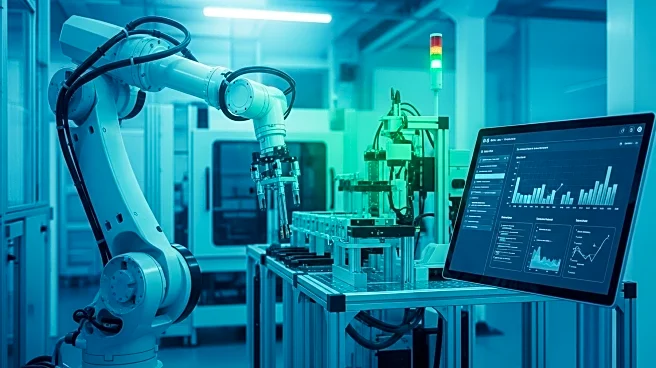What's Happening?
The integration of analytics and automation in manufacturing is transforming operations by improving efficiency, reducing downtime, and supporting sustainability. By leveraging data-driven decision-making, manufacturers can optimize equipment use, material flow, and workforce deployment. This approach allows for real-time monitoring and predictive maintenance, preventing costly failures and enhancing product quality. The adoption of analytics also lays the groundwork for advanced technologies like AI and machine learning, which rely on clean and reliable data.
Why It's Important?
As the manufacturing industry faces challenges such as bottlenecks, unplanned downtime, and inconsistent product quality, the integration of analytics offers a competitive edge. It enables manufacturers to shift from reactive to proactive operations, improving both day-to-day performance and long-term strategy. This transformation is crucial in an era where operational efficiency, agility, and resilience are key to staying competitive. The successful adoption of analytics requires cultural changes, including employee training and cross-departmental collaboration, highlighting the importance of a strategic approach to digital transformation.
Beyond the Headlines
The integration of analytics into manufacturing not only addresses immediate operational challenges but also sets the stage for future technological advancements. As manufacturers adopt AI and machine learning, the role of data becomes even more critical. This shift may lead to new business models and opportunities, as well as ethical considerations around data privacy and security. The ongoing digital transformation in manufacturing reflects broader trends in Industry 4.0, where data and technology drive innovation and growth.











